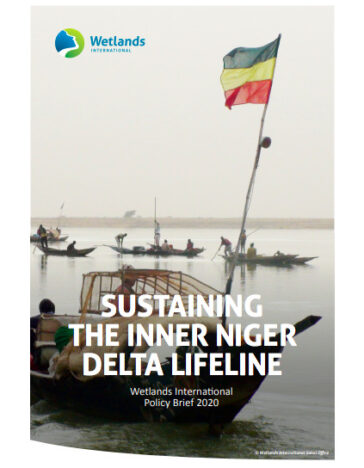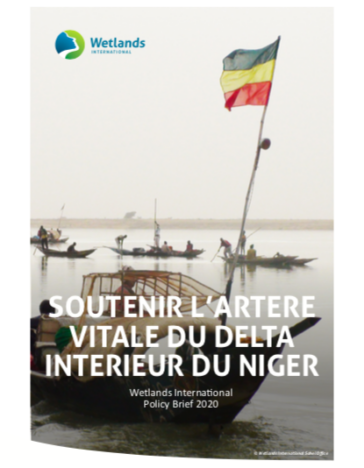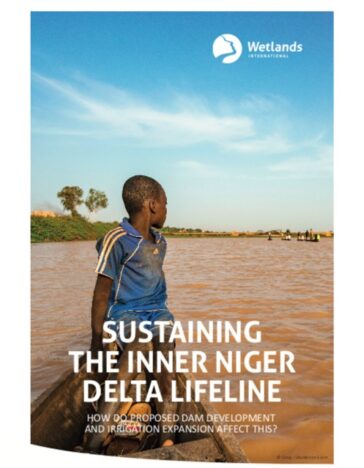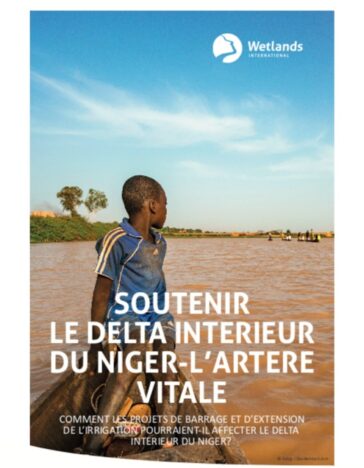
Authorities urged to revise plans for large-scale irrigation and dam construction along Mali’s blue lifelines
-
Climate and disaster risks
-
Community resilience
-
Integrated delta management
Plans for large-scale irrigation and dam construction along the river Niger in Mali, require serious and urgent attention from national, regional and international authorities, according to a new study and policy briefing by Wetlands International and partners. As currently designed, the planned infrastructure will dramatically affect the country’s Inner Niger Delta, negatively impacting production and livelihoods, compounding tensions in an already fragile region.
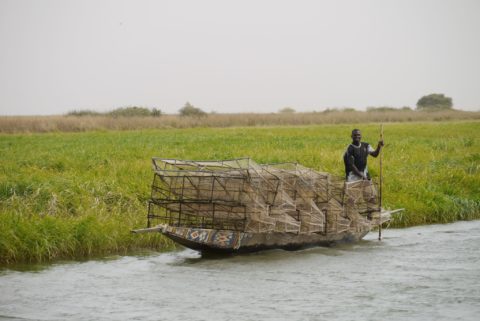
Current threats to the Inner Niger Delta
The Inner Niger Delta (IND) wetland in the centre of Mali, with its seasonal floodplains, plays an essential role in food security and sustains up to two million livelihoods. But, plans for large-scale expansion of irrigation together with the construction of the Fomi dam upstream, are set to reduce water flow into the delta, directly impacting the flood extent and production in the wetland.
‘Sustaining the Inner Niger Delta Lifeline’ by Wetlands International, supported by Wolfs Company, Potsdam Institute for Climate Impact Research, Altenburg and Wymenga and International Water Management Institute, launched this month, estimates that the combined impacts of planned irrigation and dam construction are likely to reduce average rice production in the wetland up to 11%. And, in the key region of Mopti, it is likely to reduce traded fish catch 20%, with cattle populations decreasing up to 7%. Biodiversity loss will be severe. Such impacts will fuel increased competition for natural resources, which in turn, will increase the fragility of an already security-compromised country.
The government must listen to the people
The stark findings, which come in the wake of a military coup in August, point to the need to listen to citizens when it comes to infrastructure developments, particularly those affecting the Inner Niger Delta. President Ibrahim Boubacar Keita was ousted on 18 August following mass demonstrations against corruption, a deteriorating security situation and mismanagement of the economy. Mali’s new leaders have since agreed to establish an 18-month transition government. A transition charter has been elaborated to guide the government until new elections take place.
“This study shows that more than ever it is vital that the government listens to its citizens, including inhabitants of the Inner Niger Delta Water for whom water is a key issue. Water is an essential resource for a Sahelian country like Mali, involving many actors”, says Joyce Kortlandt, Wetlands International’s senior advocacy officer. “It should not be guided by just one sector but requires truly integrated and multi-sectoral management involving all stakeholders, both from different sectors as well as from different levels, starting from people on the ground.”
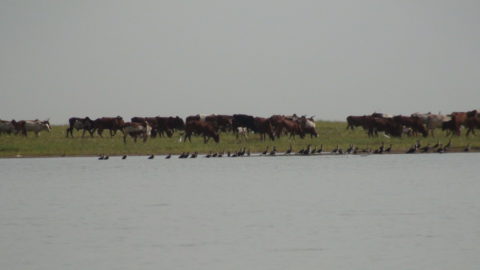
The severity of the situation
The average numbers actually mask the seriousness of the situation, the study finds. The year 1984 is often used to illustrate the destructive forces of drought conditions, leading to national famine and a mass livestock die-off. While such a disaster year currently occurs once every 50 years, under the planned infrastructure, will increase the frequency of such a disaster to once every 12.5 years. Since the Malian population has grown significantly since 1984, the occurrence of a disaster will affect more people than before.
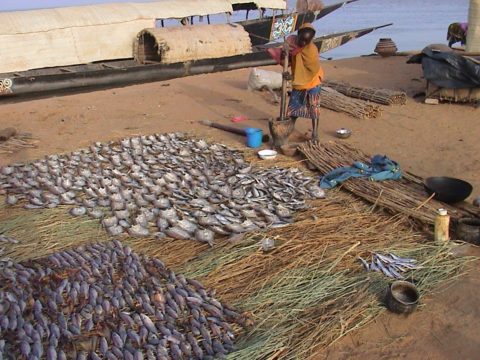
Authorities must take urgent action
The current development plans require serious and urgent attention from national, regional and international authorities. Measures should ensure that water-related developments maintain critical natural systems such as the IND rather than depleting them and creating risks and problems, points out Wetlands International’s policy brief.
The Government of Mali should rethink the current plans to expand Office de Niger irrigation and develop the Fomi dam and make choices for food and energy security based on timely and transparent environmental assessments. Water should become a national priority and development choices should be guided by genuinely integrated and multi-sectoral water resource management. International actors can help by providing financial and technical support for projects that support such priorities and that avoid contributing to conflict.
About ‘Sustaining the Inner Niger Delta Lifeline’ report and policy brief
The policy brief is written for national, regional and international authorities, as well as for civil society organisations active in Mali. It draws on the key findings of the report, ‘Sustaining the Inner Niger Delta Lifeline: How do proposed dam development and irrigation expansion affect this?’ The report provides an in-depth analysis of the IND and the impact of development plans, based on extensive research by key partners of Wetlands International and supported by the Dutch Embassy in Mali.
The policy brief and the research report are available in English and in French.

